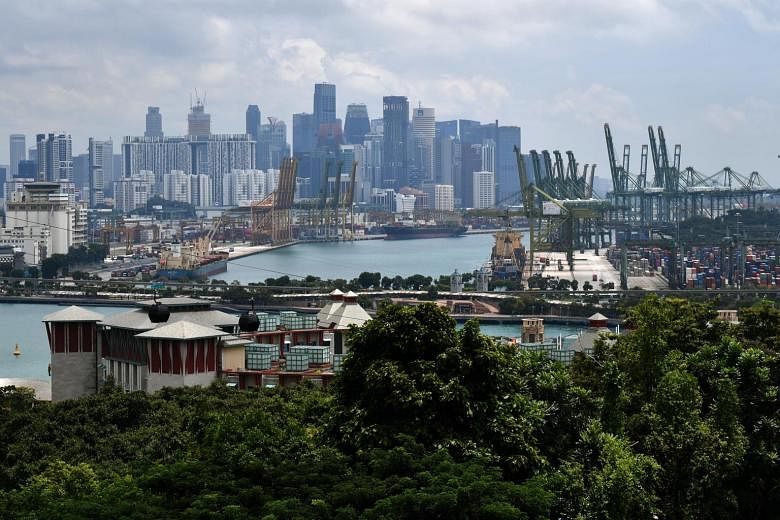SINGAPORE - Singapore has a unique historical opportunity to thrive in a more connected global economy by overcoming geopolitical and supply chain challenges, said Education Minister Chan Chun Sing.
He said the Republic cannot rely on its geographical location, natural resources or population size for relevance in the world.
"Instead, we create our relevance through a strategy of connectivity with the world - across physical dimensions of air, land and sea connectivity, and non-physical dimensions of data, finance, regulations, technology and talent," Mr Chan said on Monday (July 26).
Delivering the keynote speech at the Beyond Pandemic & Politics: Behold South-east Asia And The World event organised by law firm Rajah & Tann Asia, he said frictions in United States-China relations and increasing reliance on digital connectivity are changing the shape of global trade and supply chains.
"A new geography of trade is emerging. It is defined by connectivity, rather than distance or demography."
He noted that historically, economic ties and value chain integration have historically been shaped by distance.
However, the reduction of transport costs, the rise of the digital economy and the considerations for supply chain resilience are reshaping the global connectivity map, he said.
Mr Chan said multinational companies, in deciding their investment and global production layout, will look for destinations that provide connectivity of data and financial flows, have harmonised rules and standards for intellectual property protection, can help mobilise capital and aggregate talent, and have the ability to remain connected to global markets in times of crisis.
This is why beyond conventional free-trade agreements, Singapore is developing a new generation of digital economy agreements to harmonise rules and boost connectivity, he noted.
In the midst of these changes, the strategic rivalry between the US and China will remain a feature of the international system, Mr Chan said.
While many have framed the US-China relationship as a zero-sum contest for global leadership, neither will collapse in the foreseeable future, and certainly not from the pressures from the other party, he said.
"The rest of the world will closely study their development models and exercise of power. Countries will then gravitate towards the partner that aligns with their own long-term developmental needs and security interests," Mr Chan said.
For Singapore, however, choosing sides is not an option, he added.
"We stand for an inclusive and connected world and do not adopt a zero-sum mentality. We work with like-minded partners, as part of the other two-thirds of the world, to build a rules-based global order for trade and security."
Singapore's deep understanding of the priorities of other parties - be they superpowers or regional neighbours - can add value to its relationships constructively, he said.
"In a world of uncertainties, we provide a safe harbour with policy consistency and coherence for investors to plant their long-term investments here and for global businesses to operate out of Singapore as a key node in global network and value chains. This in turn creates good jobs for our people."


